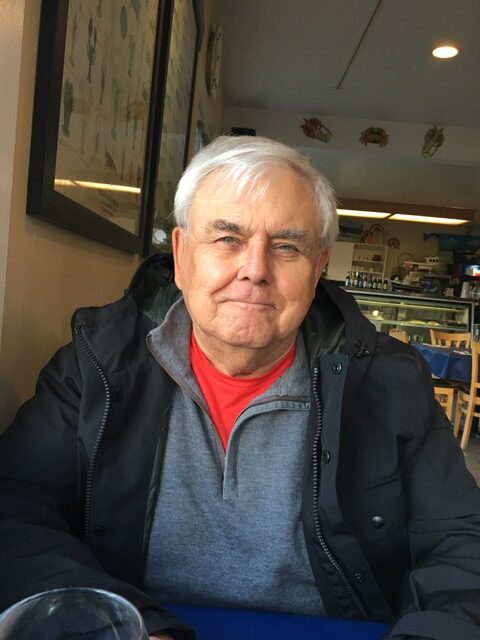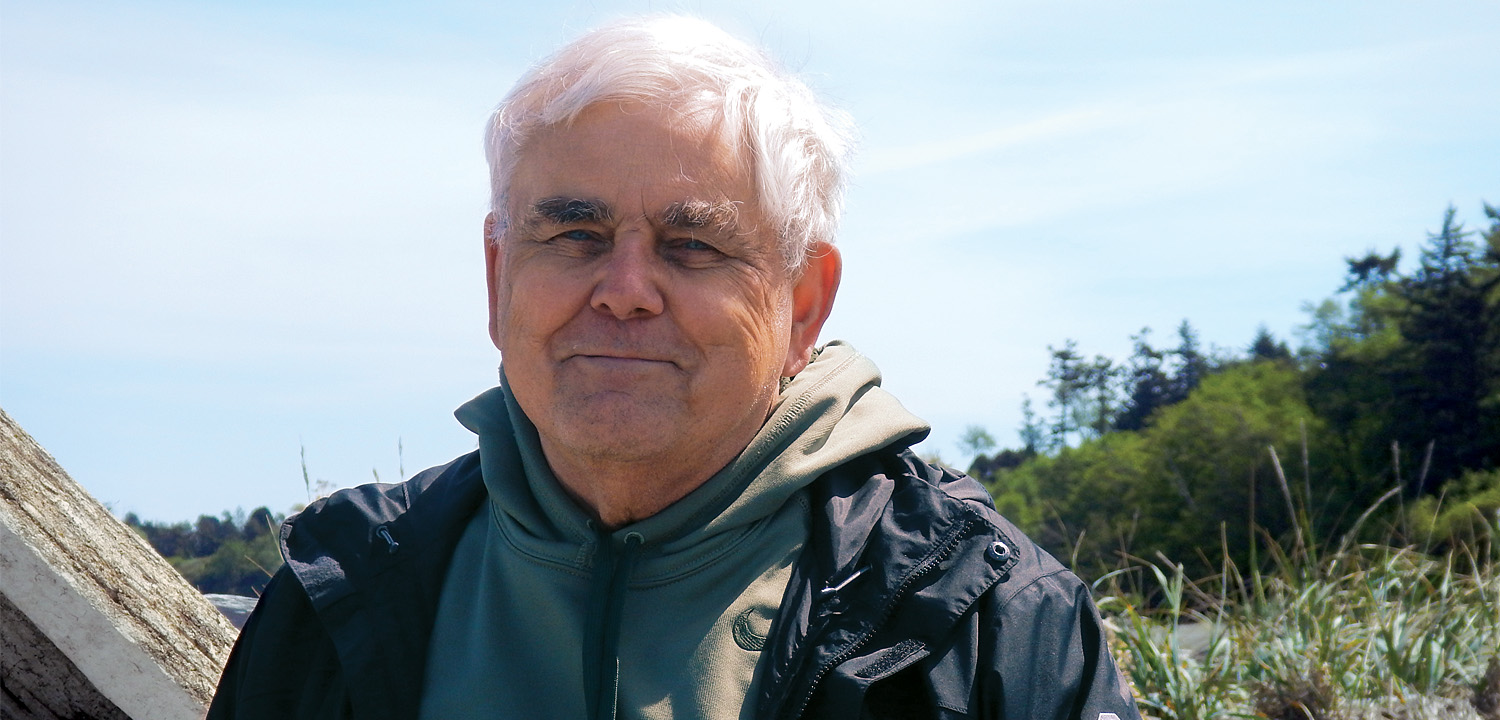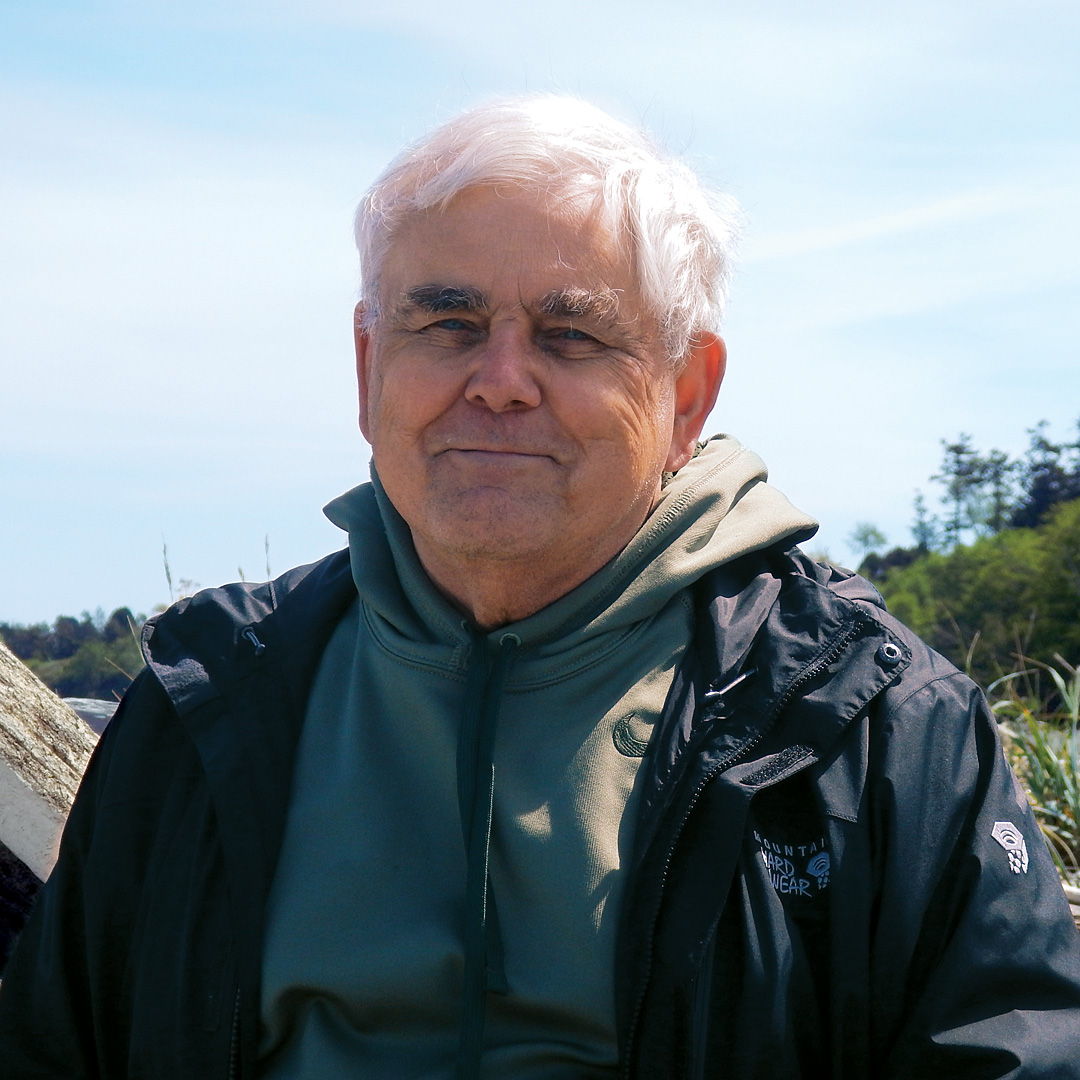The renowned author of Salmon Without Rivers—and former Wild Salmon Center Board Member—passed in April 2024.

In April 2024, we lost a visionary scientist and wild fish advocate whose words forced the world to face hard truths about wild salmon at a time when many sought to look away.
Jim Lichatowich (5/10/1944–4/28/2024) was a veteran biologist with the Oregon Department of Fish & Wildlife, and one of the most widely-read authors in the salmon canon. Salmon Without Rivers (1999) and Salmon, People, and Place (2013) landed on bookshelves at a time when fisheries managers across the West Coast were scrambling to explain steep and accelerating declines in salmon populations.
In his writing, Lichatowich called out what he saw as ineffective and even counterproductive salmon management strategies. (Hatcheries were a recurring target.) He also challenged the larger paradigm in which managers saw salmon not as a keystone species essential to functioning ecosystems, but as a commodity like soybeans and cattle.
“Jim Lichatowich’s ideas and publications were in many ways the foundation of our work,” says Wild Salmon President & CEO Guido Rahr. “Oregon’s salmon watersheds (and beyond) would be far poorer without the courage and leadership he demonstrated throughout his life.”
Rahr and Lichatowich met early in the 1990s, when Rahr was working for Oregon Trout. The two collaborated on two papers about salmon refuges, and traded thoughts on WSC’s emerging stronghold strategy.
From 2007 to 2011, Lichatowich served as a WSC board member. It was a period that overlapped with the growing influence of Salmon Without Rivers, by then widely distributed in salmon communities and policy circles—including in Russia, following the release of a WSC-led Russian translation. Rahr credits the book with slowing the spread of hatcheries in the Russian Far East.
“Jim Lichatowich’s ideas and publications were in many ways the foundation of our work.”
Wild Salmon Center President & CEO Guido Rahr

Dr. Jack Stanford, a longtime research collaborator with Lichatowich (and WSC Board Director Emeritus), says that Lichatowich’s impact stemmed in part from the refreshingly non-academic perspective he brought to salmon conservation.
“His legacy is that he’s been on the right track scientifically without being a ‘scientist’ per se,” Dr. Stanford says. “He understood everything, approached his subjects with calmness, and wrote beautifully. He was the gentleman of the salmon wars.”
Lichatowich lost his battle with cancer on April 28, 2024—months before the still-pending publication of his latest work.
Managed Extinction, co-written with Dr. Rick Williams (another longtime Lichatowich research collaborator) was released by Caxton Press in late 2024. Dr. Williams believes that this new book will offer readers what he and Lichatowich called “a new salmon story”—a more narrative take on the evolving science of salmon conservation.
“We saw that the data isn’t yet telling a compelling enough story to policymakers and the public,” Dr. Williams says. “It’s been 25 years since Salmon Without Rivers came out. It was very much Jim’s hope—and mine—that this new book will replace it.”
If the world has lost a salmon champion, the story of salmon conservation still has new and important chapters. It’s clear that Jim Lichatowich, even in his final months, remained passionately committed to advancing that story.
“He was a thoughtful and committed leader of salmon conservation science,” Rahr says. “It’s hard to overstate Jim’s influence on the work that we do. He will be greatly missed.”
“It’s hard to overstate Jim’s influence on the work that we do. He will be greatly missed.”
Wild Salmon Center President & CEO Guido Rahr
Hero Image

Hero Image (Home Page Section)
